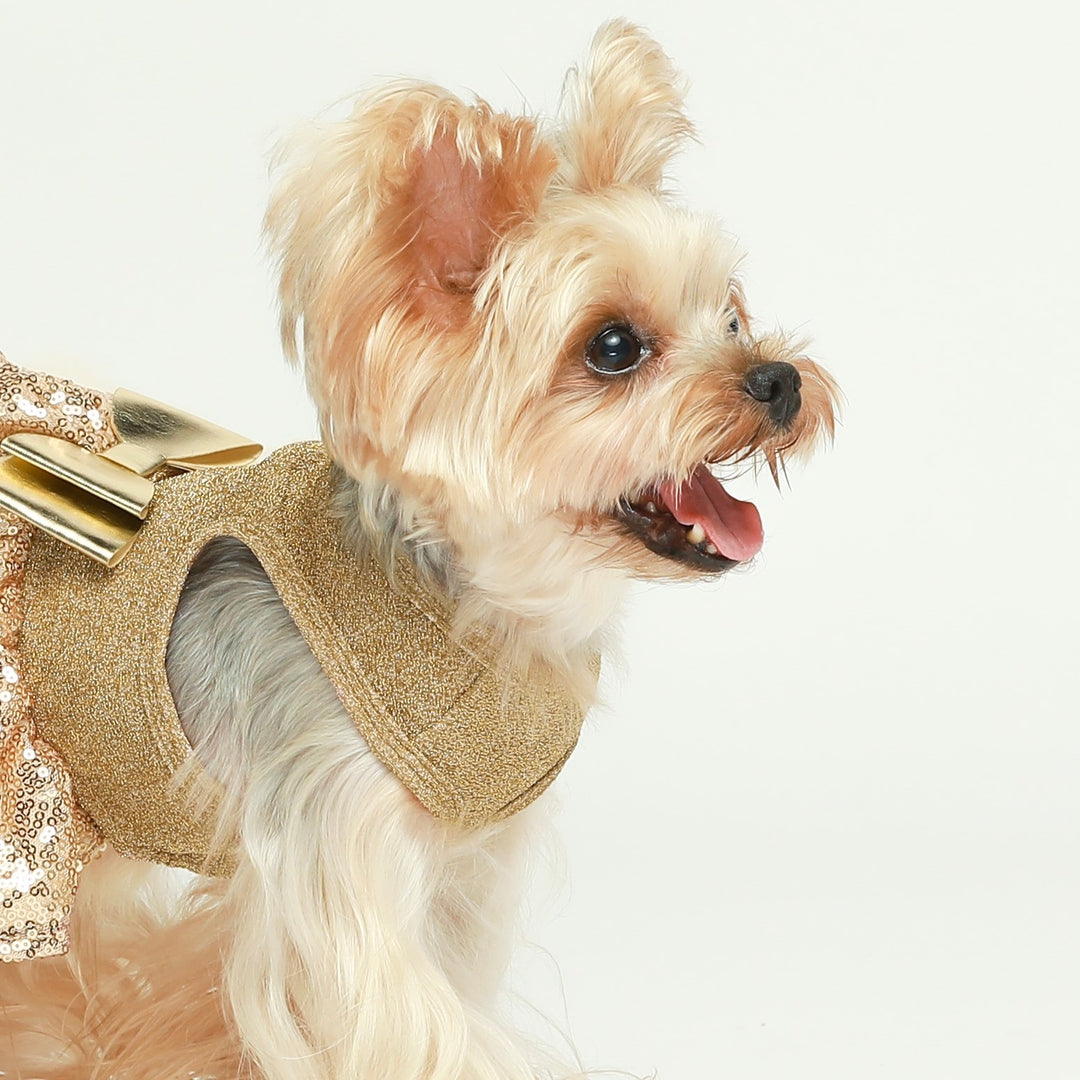Why Does My Dog Tremble? Understanding and Addressing Canine Shaking
Navigation
- What Triggers Dogs to Tremble?
- Determining Normal Versus Abnormal Shaking In Dogs
- Appropriate Response When Your Pup Shakes
- How to Comfort a Trembling Dog
- When to Contact the Veterinarian About Trembling
- How to Prevent Troubling Tremors
It's always concerning when you notice your furry friend trembling or shivering unexpectedly. From a quivering Chihuahua to a shaking French Bulldog, dog shaking likely sparks worry in most pet parents. But should you be alarmed every time your Yorkie or Beagle tremors? Not necessarily. From anxiety to old age, many explanations exist for why dogs shake. While some causes demand prompt veterinary care, other cases of dog quaking can be managed at home with tender loving care. This article explores the range of reasons your canine companion might be quivering, shaking, or shivering. You'll learn how to differentiate normal, temporary trembling from more serious, persistent shaking in dogs. Actionable tips and tricks will equip you to soothe your scared Schnauzer, warm up a chilled Chow Chow, and discern when it's prudent to call the vet about your unsettled pet. Read on for expert insight on diagnosing and addressing those doggy shakes!

What Triggers Dogs to Tremble? Understanding the Causes
Dogs shake and shiver for a variety of reasons. Pinpointing the root cause can alleviate worry and guide your response. Breaking down the most common triggers for dog trembling provides insight into when to intervene and when reassurance alone will suffice.
1. Anxious Pups: Stress and Separation Anxiety
For sensitive breeds like Havanese and Yorkies, anxiety tops the list of potential reasons for shaking. From loud noises to separation distress, an abundance of stimuli reads as stressful for some dogs. Signs your pooch trembles from anxiety include:

- Onset during storms, fireworks, or other loud noises
- Shaking when home alone or separated from owners
- Distress behaviors like whining, pacing, destruction
- Excessive licking or panting alongside trembling
2. Chilled Out: Temperature Regulation Issues
On the flip side, dogs also shake and shiver when they get too cold. Veterinarians affectionately call this "chilly shaking." From tiny Chihuahuas to elderly Boston Terriers,

a range of conditions can prompt temperature-related trembling including:
- Prolonged time outdoors in cold weather
- Wet fur after a bath or swim
- Drafts or exposure to air conditioning
- An infection resulting in fever or illness

3. Raring to Go: Trembling Due to Excitement or Anticipation
From zooming Zoomies to pre-walk jitters, excitement, and anticipation often manifests as trembling and shaking in many dogs. Eager pups like Corgis, Beagles, and Schnauzers frequently quiver when they work themselves up, especially in situations like:
- Preparing for a walk or car ride
- Approaching mealtimes
- Gearing up for playtime or having guests over
- General arousal like seeing a squirrel run by

4. Wobbly Seniors: Trembling Caused by Age or Health Issues
As dogs reach their golden years, various age-related conditions can emerge making body-wide trembling more prevalent. Senior pups or dogs managing chronic illnesses often experience shaking and shivering due to:
- Arthritis - Painful joint inflammation leaves old dogs feeling continually uncomfortable. Discomfort and muscle weakness contribute to trembling.
- Cognitive Dysfunction Syndrome - Similar to Alzheimer's disease in humans, this progressive brain disorder leaves senior dogs confused, anxious, and disconnected from their environment. They often pant, pace, shake, or seem lost in familiar settings.
- Organ Failure or Neurological Disorders - Chronic conditions tax the body.
5. In Pain: Trembling Caused By Injury or Illness
Dogs also shake or shiver when experiencing significant pain or discomfort from injury, surgery, or due to chronic musculoskeletal issues like hip dysplasia. Signs your hurt hound's shakes stem from pain include:
- Onset after a major injury like a broken bone or sting/bite
- Shaking localized to a sore leg or injured paw
- Worsened trembling at night or when moving around
- Guarding behavior, sensitivity, flinching, or aggression when touched

6. Too Hot or Cold: Trembling to Regulate Body Temperature
Finally, both overheating and getting too cold can leave pups shaking as their body works overtime to maintain ideal warmth. Dogs have a higher core body temperature than humans - averaging 101-102.5°F versus 98.6°F. Staying within this optimal range keeps your canine's biological processes humming.
Watch for temperature-related trembling if your dog is left unprotected in very hot or cold weather for long durations. Excess panting, drooling, erratic breathing, lethargy, or collapse accompanying shakes indicate heat stroke or hypothermia requiring emergency veterinary treatment.
Determining Normal Versus Abnormal Shaking In Dogs
Not all trembling merits equal concern. By considering the situation triggering shakes, how long the shaking persists, and other symptoms present, you can better gauge the appropriate response.
1. Context Matters
Shaking while cozied up near a fireplace after some time outdoors differs greatly from sudden trembling arising during normal daily activities. Take note of elements like:
- Events preceding shaking - Did shaking begin during a thunderstorm? Post-bath? At random when relaxing?
- Dog's age/medical history - Senior or unwell dogs more prone to abnormal shaking
- Exposure to potential triggers - Loud noise, temperature change, etc.
For example, trembling that appears out of the blue, continues for lengthy periods, arises unexpectedly with no potential trigger, or impacts daily functioning falls outside normal parameters.
2. Duration & Frequency
Brief shaking which resolves quickly rarely raises concern. Conversely, persistent, frequent shuddering likely indicates an underlying problem.
- Healthy response: Shaking lasting under 5 minutes
- Potential problem: Trembling lasting over 30+ minutes or reoccurring frequently

3. Accompanying Symptoms
Other symptoms pairing shaking provide insight into severity. Especially watch for:
- Changes in appetite, bathroom habits, activity levels
- Persistent panting, whining
- Lethargy, trouble moving
- Aggression, guarding behavior, sensitivity to touch
Multiple co-occurring symptoms alongside prolonged trembling require prompt veterinary care to diagnose and treat the underlying condition.
Appropriate Response When Your Pup Shakes
Tailor your response to trembling episodes based on the likely root cause:
1. Anxious Dogs
- Offer reassuring pets, speak calmly
- Guide to safe space away from the trigger
- Diffuse calming pheromones
- Use ThunderShirt wrap
2. Senior or Unwell Dogs
- Call your veterinarian
- Limit activity/mental stimulation
- Offer easy-to-digest foods/fluids

3. Temperature Regulation Issues
- Move to a warmer/cooler environment
- Offer to bed away from drafts
- Keep hydrated
4. Overexcited Dogs
- Redirect to chew toys
- Practice settle training
- Offer food puzzles/chews
- Increase physical/mental exercise
How to Comfort a Trembling Dog
While addressing the root cause proves most effective long-term, take steps to immediately comfort a shaking dog in distress. Tried and true options include:
- Offer Reassuring Touches: Gently pet or wrap shaking pups in a blanket, speaking in low, calm tones. Avoid restraint which may elevate anxiety.
- Play Soothing Music: Use calming playlists to muffle frightening noises. Studied options include reggae, soft rock, and classical.
- Leverage Anxiety Wraps: Apply commercial wraps to supply comforting pressure against shuddering bodies. These harness-like garments work wonders for loud-noise phobias.

When to Contact the Veterinarian About Trembling
Schedule a veterinary appointment promptly if your dog experiences:
- Prolonged Shaking: Call your vet if trembling persists over 30+ minutes or impairs your dog's daily activities despite your best efforts at soothing. This can signal an urgent medical issue requiring attention.
- Additional Concerning Symptoms: Multiple symptoms in tandem with shaking give vets key diagnostic clues. Note symptoms like appetite/bathroom changes, aggression, respiratory issues, etc.
- Sudden Shaking in Seniors: New-onset trembling in aging dogs warrants careful evaluation for conditions like cognitive dysfunction, arthritis, or cancer common in older canines.

How to Prevent Troubling Tremors
While not all shaking proves preventable, proactive care makes recurrent tremors less likely:
- Feed Quality Diet/Ensure Adequate Exercise: An overall healthy companion with ideal body condition experiences fewer age and disease-related tremors.
- Address Sources of Anxiety: From separation distress to storm phobia management, curtailing acquired anxiety triggers care for lifelong well-being.
- Stick to Recommended Veterinary Care: Follow your vet's senior care protocols, vaccine guidelines, and labwork recommendations to enable early diagnosis.

Conclusion
When your pup starts exhibiting concerning tremors or shaking, stay calm and leverage the guidance from this piece. Consider context, duration, frequency, and other accompanying symptoms to gauge appropriate response. Address anxiety triggers, regulate temperature, manage pain with veterinary partnership, and customize calming and preventative care strategies. Through attentive observation, proactive problem-solving, and prompt veterinary care when warranted, you can competently address those disconcerting doggy shakes and keep your companion contented for years to come.
Read More
- Calling All Shark Enthusiasts: Which Dog Shark Costume Will Make a Spl– Fitwarm
- The Lastest Drop This Season - New Fitwarm.com
- From Tartan to Buffalo Check: How to Wear Plaid Clothing– Fitwarm
- Discovering the Short Hair Chihuahua: More Than Just a Petite Pooch!– Fitwarm
- Ultimate Guide to Managing Dog Shedding & Seasonal Coat Care– Fitwarm












